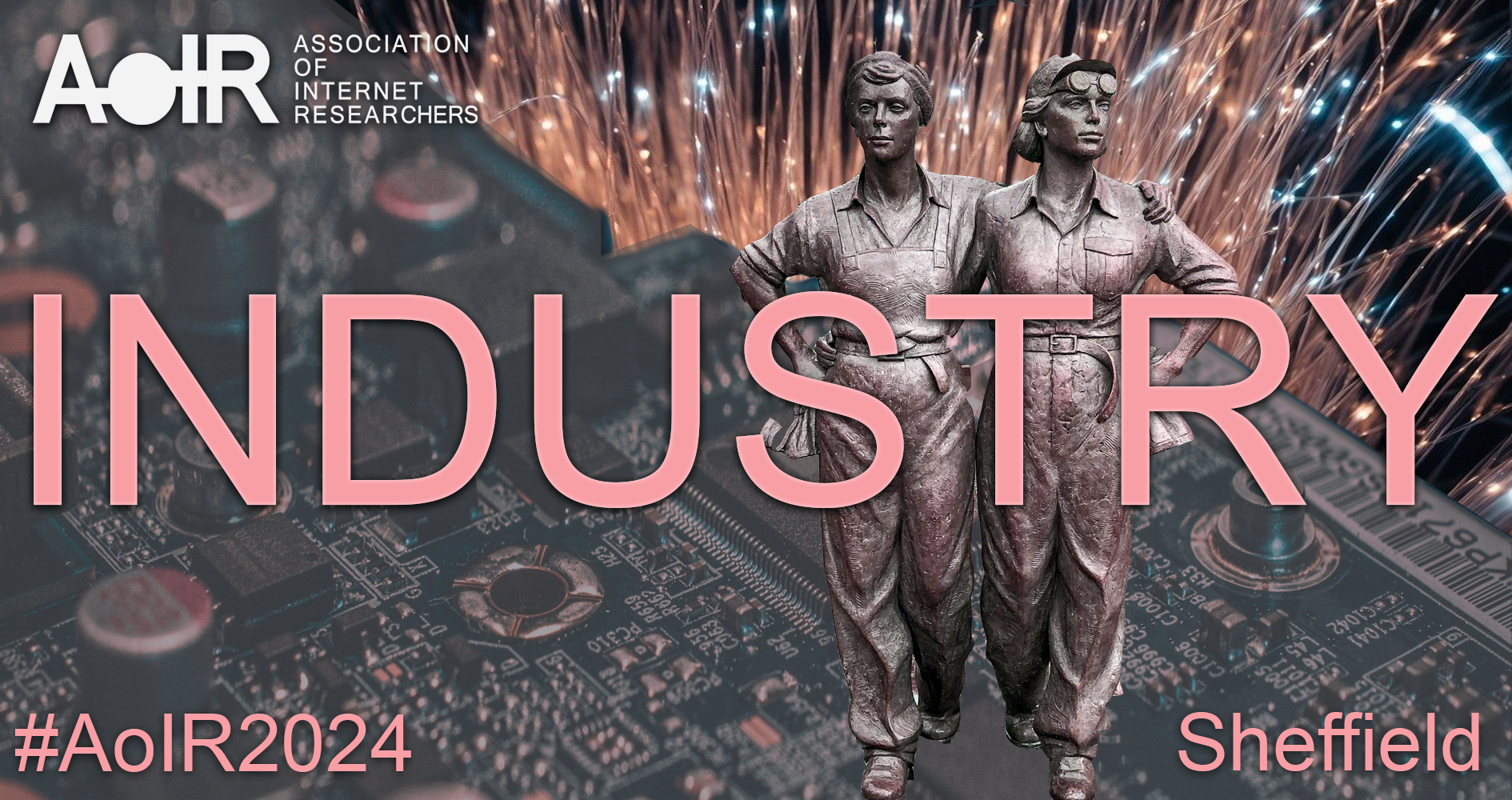Each year a small portion of AoIR conference fees go toward several travel scholarships for junior scholars to attend the conference. We want to recognize our scholarship recipients and share with you a little bit about them and their research interests.
 Who are you?
Who are you?
My name is Ochega Ataguba (@Chega23@aoir.social). I am a digital communications expert and a researcher on African digital cultures. I currently do research around social media, notably X, previously Twitter.
Where are you from?
I was born and raised in Nigeria, where I did my BA in Mass communication. I lived in South Africa for many years, where I studied for my honours and MA at the Centre for Film and Media Studies, University of Cape Town UCT. I am completing my PhD in media studies at the Centre in UCT.
What is your current area of study?
My research focuses on issues at the intersection of digital technologies, social justice activism, gender, and African politics. I am working on how social media, specifically X, impacts and shapes citizenship through online civic engagement and political participation among the Nigerian public. I explore the innovative use of social media to shape social and political realities and how digital acts enable or constrain political action in Africa amidst issues around access and the understandable distrust and failings of digital platforms.
Describe the research you will present at AoIR2023.
I am part of a panel at the #AoIR2023 conference in Philadelphia, unpacking the theme, “Digital Technologies and Revolution in Africa: Complexities, Ambivalences, and Contextual Realities.” I will contribute some of the findings from my research paper titled Digital Citizenship in Nigeria: claims-making, renegotiation of ethnic identities, and political contention. The article is part of my PhD dissertation, a broader project that explores how the internet has impacted the idea and practice of digital citizenship in Nigeria. I gathered data from X, previously Twitter, using digital methods from March 2022 to April 2023, coinciding with the country’s 2023 elections and the change in the platform’s ownership.
My paper examined how context-specific peculiarities in a country imbued with culture and diversity like Nigeria might result in different meanings ascribed to citizenship in online spaces. Using the digital citizenship framework as a conceptual guide and critical discourse analysis, the analysis indicated that X users perform various dimensions of digital citizenship through online dissidence and claims-making in combative and contentious ways. I demonstrated how X became an avenue through which exclusion and inclusion occur among Nigerians whose primary affiliations were to their ethnic groups rather than their country. For instance, owing to the counternarrative affordance of X, the oppositional discourses between the Yorubas and Igbos and their primordial interests were significantly reinforced on the platform. Interestingly, Nigerians on X engaged in contestations, violently disagreeing and simultaneously creating counter-hegemonic networks, but without disappearing into filter bubbles or echo chambers, as is often the case in polarized societies. It shows that despite the divergence of political attitudes away from national allegiance towards ideological, religious and ethnic extremes, there was still room for dialogue and subversions on Nigeria’s X. Nigeria’s digital subjects manifested these through sharing, connecting, dissenting, dragging, witnessing and holding government institutions such as the INEC (Nigeria’s national electoral body) to account. These findings are significant in the context of the ongoing democratic regression in a divided society such as Nigeria.
Have you presented at AoIR in the past? If so, what was your experience? If #AoIR2023 in Philadelphia is your first AoIR conference, what made you choose this conference? What do you expect from it?
#AoIR2023 will be my first AoIR conference. I chose this conference because Aoir is one of the largest professional gatherings of media scholars. Such a crucial event that brings together a vibrant community of digital media researchers provides an excellent opportunity to share my work with others and learn from other scholars. After gathering data and completing my findings, I felt the conference offered a perfect opportunity to disseminate my results as I near the end of my Ph.D. Most importantly, I was awarded the AoIR sponsorship. This benefit made the whole process a lot easier.
I look forward to meeting and learning from academics and scholars in my field worldwide. How exciting it would be to network and sit in one room with those highly influential scholars and thinkers whose works I have been citing over the years. I look forward to this more than anything.

